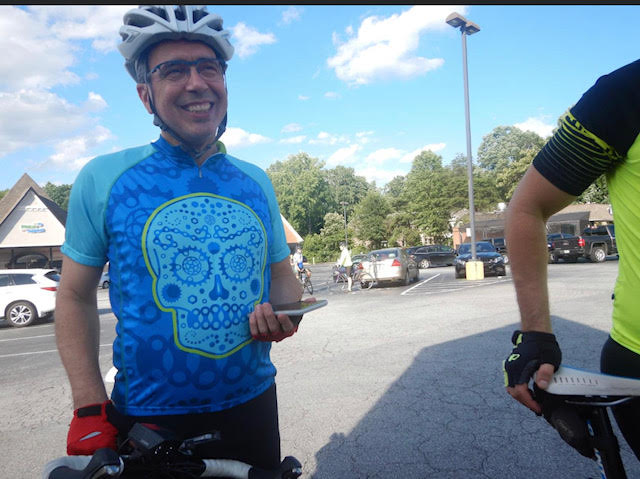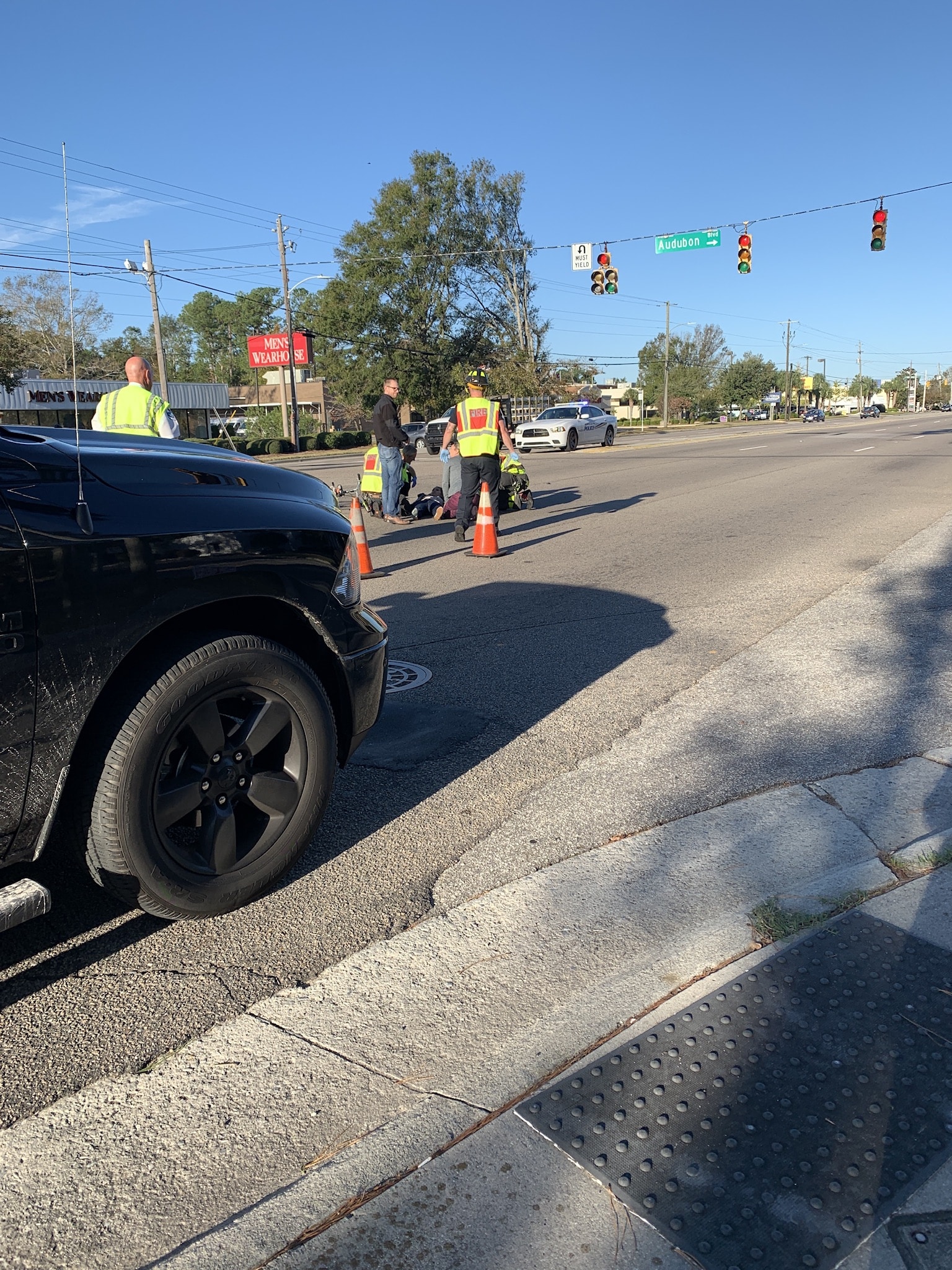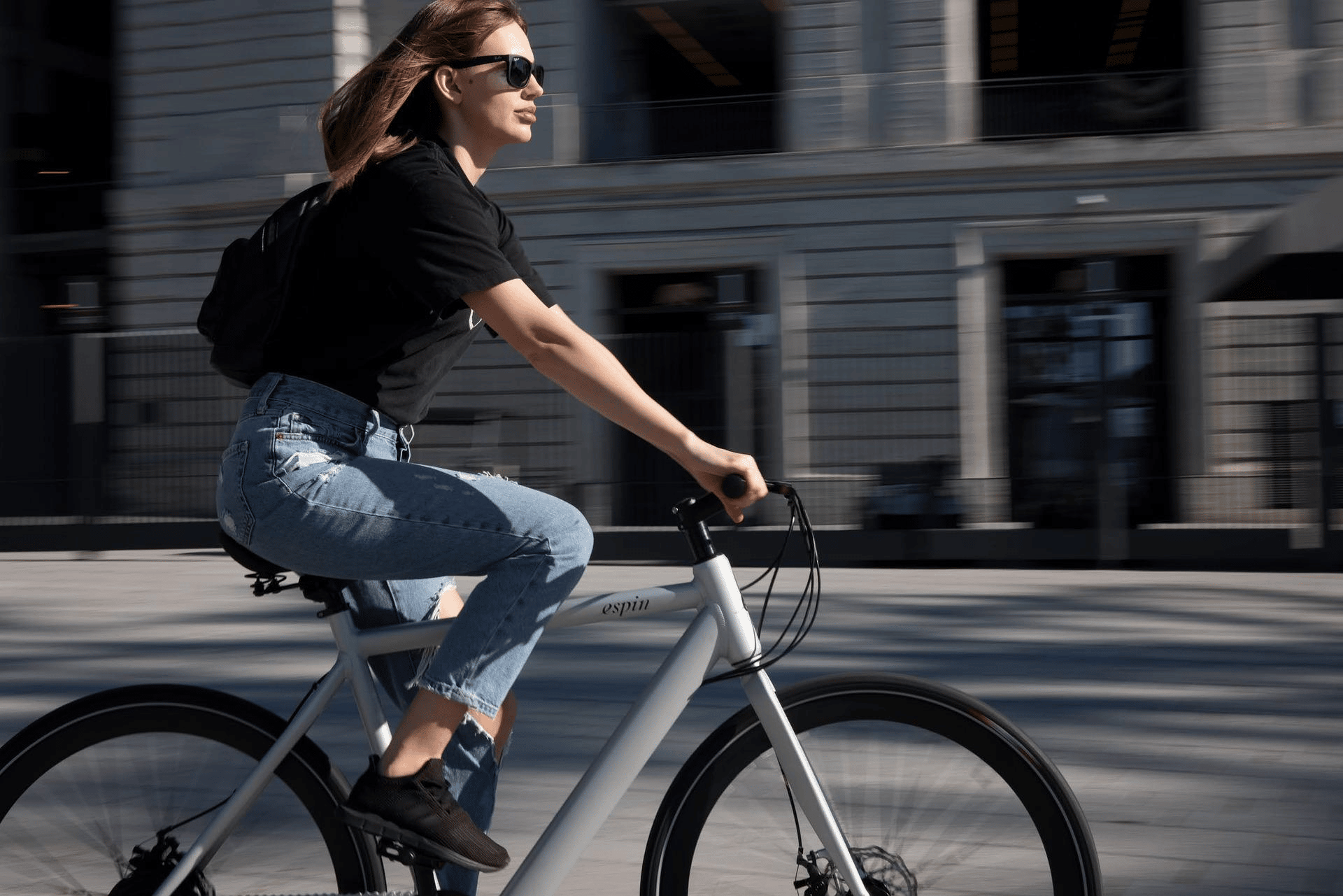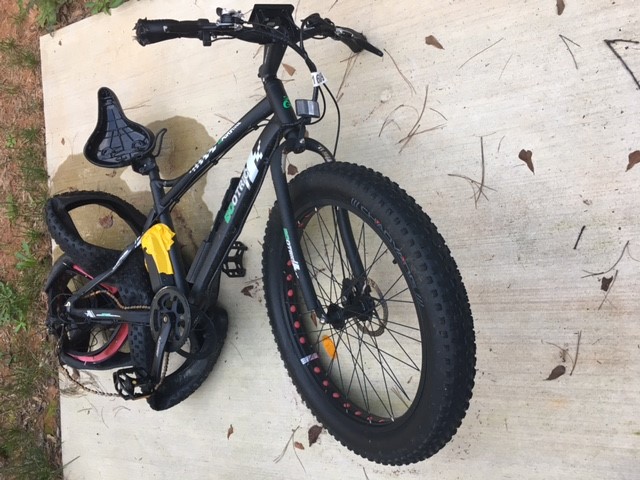On May 1, 2020, the City of Dunwoody’s new Vulnerable Road User (“VRU”) ordinance will take effect, the first such law to be enacted anywhere in the State of Georgia. Hopefully neighboring municipalities like Sandy Springs, Roswell and Chamblee will follow suit, and more importantly, the State of Georgia. VRU laws recognize and prioritize human life over cars, providing enhanced penalties against any car driver whose actions cause harm to someone that’s not in a car. However, as recent tragedies remind us, laws alone will not save lives.
On Friday, April 24, 57 year old Felix Mayer, a long time fixture on the Dunwoody bicycling scene, was killed in broad daylight by a driver who was allegedly distracted by his phone. The driver fled the scene, leaving Felix on the side of the road to die. Sandy Springs police have made an arrest and the driver has been charged with Felony Vehicular Homicide, among other charges. Felix was a very experienced and cautious cyclist who knew how to ride safely and responsibly. Sadly, that was not enough to protect him from the actions of a reckless driver.
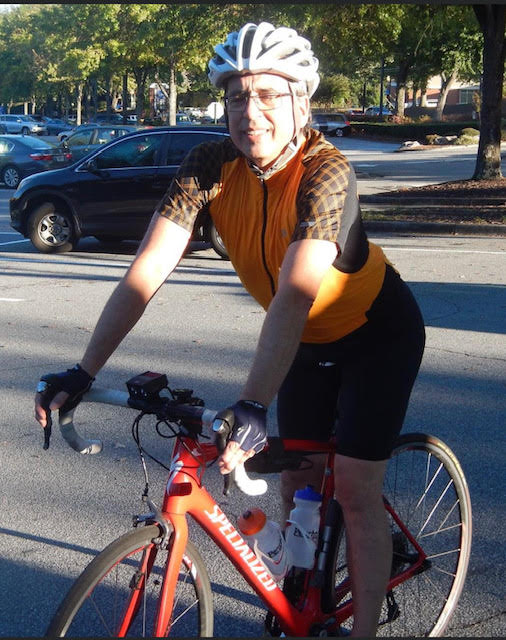
Less than a week earlier, 11 year old Blake Mahoney was killed as he rode his bike in his Marietta neighborhood. The driver, a 65 year old resident of the same neighborhood, was not charged, and police say that “the boy turned his bicycle into the car’s path”. Supposedly the investigation is ongoing. Was speed a factor? Distraction? We would certainly like to know. 11 year olds may lack experience, but turning directly into the path of a moving car is not something that you would expect, so maybe there’s another explanation entirely.
The point is, while strong laws help to protect us when we’re on a bike, they will not keep us alive unless they’re accompanied by much, much more. Would young Blake Mahoney be alive today if he had been able to ride his bike safely on a multi-use path that separated bicycles and pedestrians from cars? Would Felix Mayer still be alive today if cell phones were disabled from use while in a car, or if we had protected lanes for bicycle travel that were physically separated from motor vehicle traffic? Or for that matter, if laws against distracted driving were actually enforced?
Make no mistake, the efforts of City of Dunwoody in enacting a VRU law are very much appreciated and a solid step in the right direction. But let’s not deceive ourselves and have a false sense of security just because the law in Dunwoody punishes drivers when they hurt or kill us. Until we invest the money into safe infrastructure, and until we have a strong law enforcement presence to stop distracted driving, we are all at risk every time we get on a bicycle.
Creating a world that’s safe for everyone requires the political will to make it happen. It’s refreshing to see that the City of Atlanta recently announced the adoption of a Vision Zero policy. But policy alone will not change anything, it takes commitment to enacting the policy. As noted recently by transportation guru David Ederer, “Atlanta, while late to the Vision Zero movement, could lead by explicitly designating people walking or rolling as their design user. For too long, Atlanta has prioritized convenience over safety in its transportation system. By beginning with the principle that it will design a transportation system with the most vulnerable as its key users, Atlanta will start on a path to an effective Vision Zero program.”
That’s why we at Bike Law keep fighting, not just on behalf of the injured bicyclists (aka “People Who Ride Bikes”) we represent as bicycle accident lawyers, but on behalf of everyone who enjoys riding bikes. We fight for a world when parents can let their kids out of the house on a bike, knowing that there are safe places for them to ride. Where spouses can relax when their loved ones put on a kit and go out to ride for a few hours, comfortable that drivers will not be distracted from humans who are out on the same roads. We fight for a world where it’s safe to ride a bike to work, to the grocery store, to school. Where a bike is just seen as a functional tool like anything else, and is so commonplace that it’s almost taken for granted. When we as a society decide to prioritize human life over the convenience of moving cars faster through our neighborhoods, that’s when our work will be done. Not before.
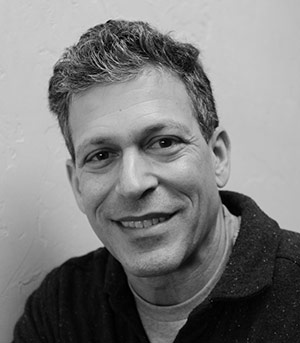
Bruce Hagan’s cyclist law firm is fully committed to representing Georgia bicyclists. “All of our attorneys and most of the staff are full-time riders,” he says. Bruce has handled hundreds of bike crash cases and actively helps bicyclists understand Georgia’s bike laws.



